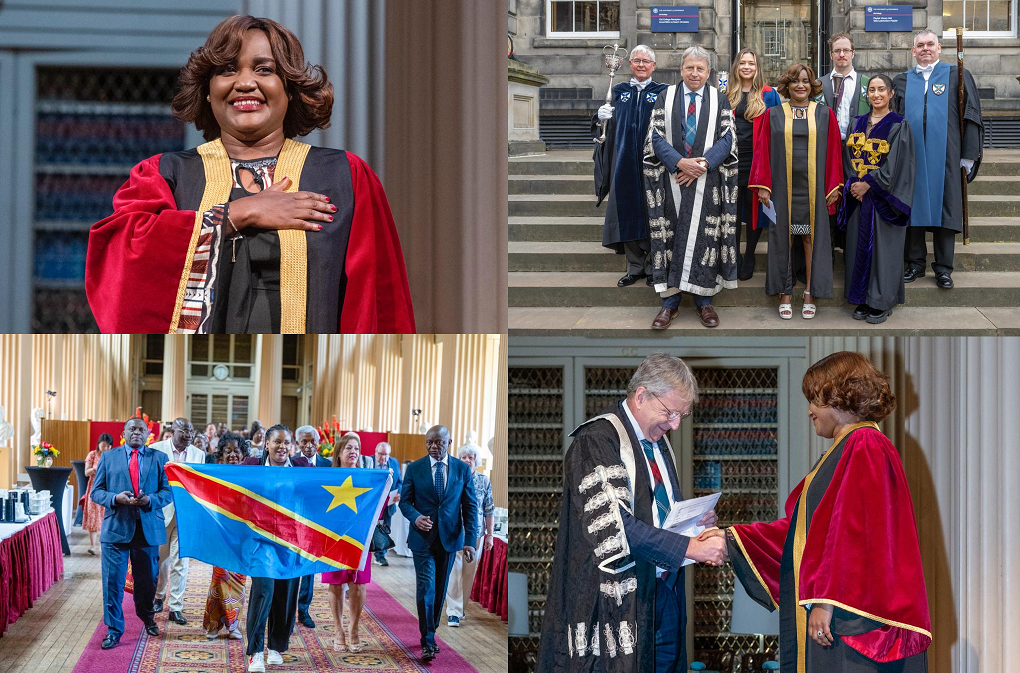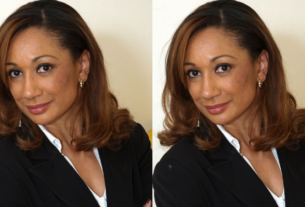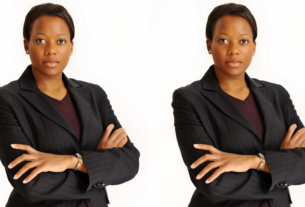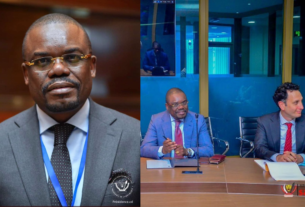Officially installed on 21 June as the 54th Rector of the University of Edinburgh, after being elected to the post in February 2021, Debora Kayembe talks in this interview about the work she has accomplished during her two years in office, and in particular the central role she has played in establishing a climate of calm within the university.
Africanshapers: You were installed on 21 June, although you were elected Rector of the University of Edinburgh in February 2021. Why the delay?
It’s purely because of Covid. When I was elected rector of the university, we had severe restrictions in Scotland. A lot of people died in Scotland because of Covid and the university had to change its entire operating system. I was offered an online installation. But I refused, because I wanted my family, friends and other people to be there. In January 2023, the WHO declared that there was no longer any risk of Covid contamination, and that’s when we decided to organise the installation ceremony.
Debora Kayembe: For this ceremony, you rejected the traditional practice of parading on the chair. Why did you make this choice?
The chair is synonymous with slavery and subordination. At the time, when the Rector stood on the chair, he was making a commitment to the British Empire to continue the work of slavery and imperialism. This practice does not correspond to the context of my election. The students and staff of the University of Edinburgh elected me because they wanted to put an end to this kind of practice and write a new page within the university. As far as I’m concerned, this chair has been banned and I hope that those who come after me will get the message and no longer use this chair.
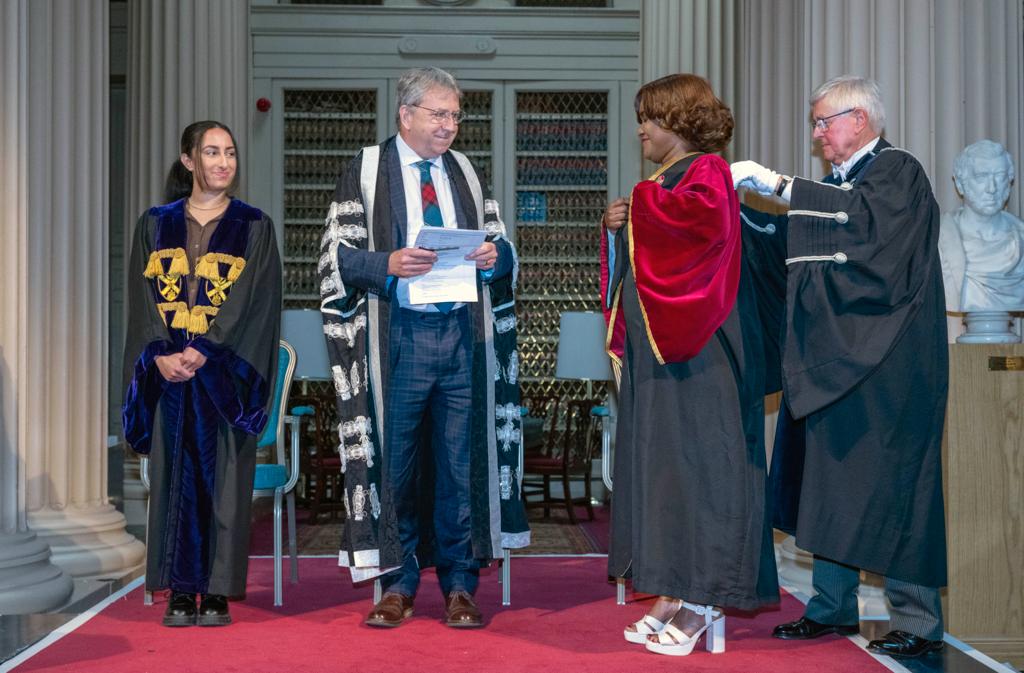
And how did the installation ceremony go?
The only thing I did was walk up the stairs that the slaves had built. The University of Edinburgh was built by slaves, many of whom died in the process. So I wanted to walk in complete freedom, without constraints or guidelines. Two songs were played. The first was “Kingdom of Love”, which explained that we are together, in love, in peace, and that we are moving forward. The second song was a dedication to the DRC, my country of origin, where I was born. This installation had two dimensions: the installation of the rector and the ancestral power that was officially bequeathed to me by my ancestors during the ceremony.
What is the role of the Rector of the University of Edinburgh?
The first role is to head the University Court, the most powerful body in the University. This court brings together all those who manage the university, in particular the City of Edinburgh and the professors who set the broad guidelines. In this court, the rector also manages the funds, as almost half of the city of Edinburgh belongs to the University of Edinburgh. The University is the city’s largest property owner. The Rector’s role is to ensure that all members of the academic body, all students and all occupants of houses belonging to the University can live in peace.
The rector is also the person who calls everyone to order. You don’t want to wake up one morning and receive an email from the Rector. That would mean you’d gone too far.
The rector of the university is elected by royal decree from His Majesty.
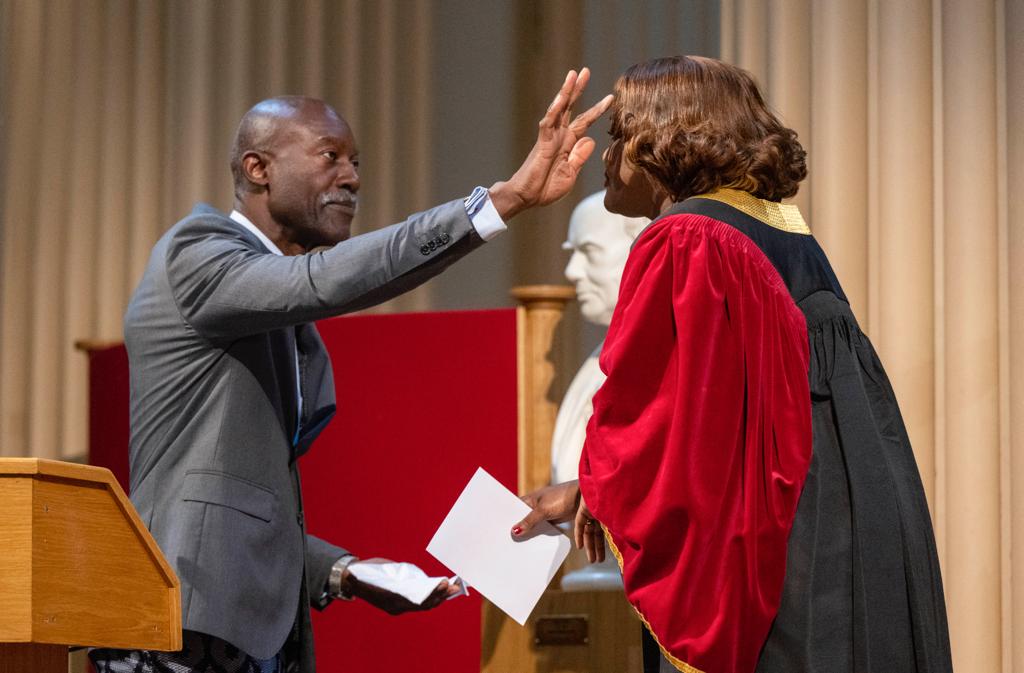
What are the areas in which the University of Edinburgh stands out today?
First and foremost, the University stands out in sustainable development. We lead Europe in climate change research. But, above all, we are the university of refuge. We open our doors to all refugees so that they can get a good education, even if they can’t afford it. It’s worth remembering that the University of Edinburgh was originally a university of excellence reserved for the white elite. But on 21 June this year, the university officially welcomed as its Rector a black woman born in Africa and educated in Africa. This simply proves that things have changed.
How many foreign, African or Congolese students are there at the university?
The university has 61,000 students, the majority of whom are foreign. Only 20% of students are Scottish or British. 75% are European or American students. The majority of these 75% are Americans. We are currently seeing a surge in Chinese students, who are enrolling in large numbers and coming with cash. Under the Erasmus programme, European students paid nothing at all and Americans came with funds from their own countries and paid very little. But the university is still looking for funds and needs people to bring cash. An international student pays £35,000 a year. And it takes 4 years to study. English and Scottish students pay nothing at all and are covered by the government. The university therefore gives much greater access to those who bring cash. Of the remaining 5%, 3% of students come from Commonwealth countries and 1% of students are Africans, including from Commonwealth and French-speaking countries. When you look at the university’s population statistics, Africans are invisible. There are no more than 200 African students at the university. That’s what I’m trying to do, because I want Africans to be visible.
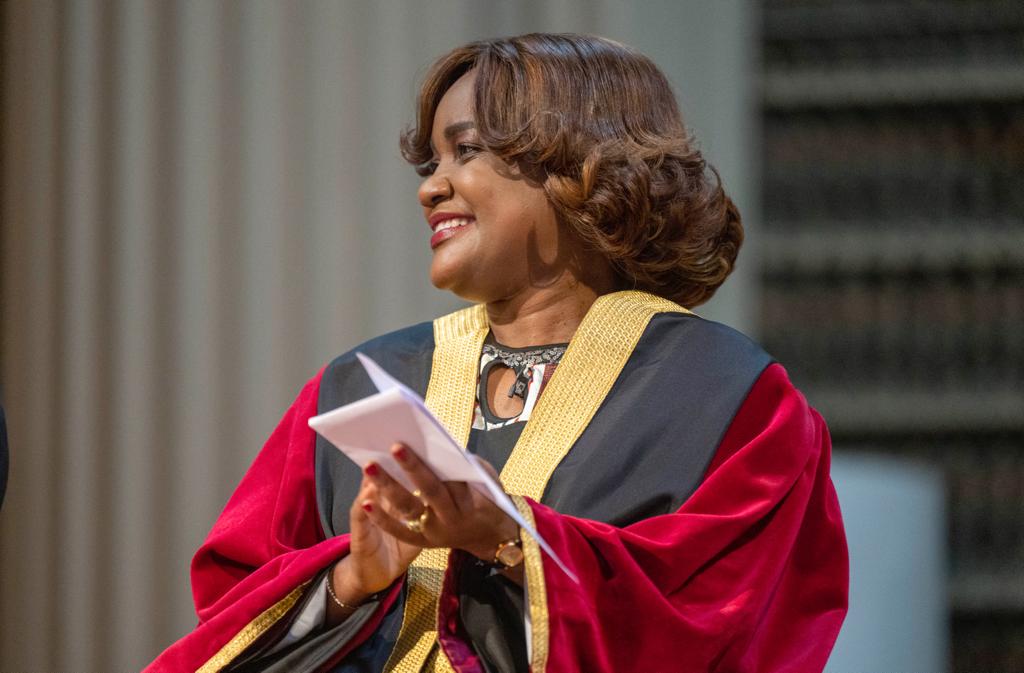
What activities have you already carried out since your election in 2021 and your installation in June 2023?
In the first year, I launched the “Respect and Dignity” programme. After my election, I found a racist and colonialist system. Teachers treated black students as if they didn’t exist. “Respect and Dignity was a 6-week programme in which I invited professors, university leaders and students to sit around a table and have difficult conversations to try to break down these barriers. The second year was devoted to my presence on the international stage, especially in the wake of the controversy surrounding my comments on Rwanda. People wanted to know who this woman was who spoke out like this about Rwanda and who even defied her own university. I have travelled to many countries around the world and represented the university. The university realised that it was making a mistake in trying to oust me and decided to keep me on as rector. So, during those two years, I did a lot of educational campaigns within the university itself to re-educate the university leaders to approach the students because they weren’t doing so. My predecessor lost an American student who found herself alone on campus with no support from anyone and, in the end, she died. The investigations showed that it was the university’s fault because the young student had felt abandoned and she died because of that. So I didn’t want this situation to recur during my term of office. I wanted to facilitate relations between students and staff. When someone wrote me an email, I would meet with them and we would talk face to face. The tense atmosphere I found when I arrived at the university has now dissipated. It was a big job and it wasn’t easy.
The worst crisis I had to deal with was that of the LGBTQ community. There have even been horrific physical attacks between members of this community on campus. They already don’t get on with each other. Who is male? Who’s a woman? That’s where the rector has to play his part in maintaining tranquillity on campus, because we are a scientific forum. In my installation speech, I spoke of humility, dialogue, respect and dignity. That’s something we all have to do everywhere in the world.
Does the University of Edinburgh have any links with other African universities?
So far, only in Ghana. We work with an organisation based in Ghana that deals with scientific research. We are trying to establish a partnership with the DRC, but it’s very complicated, not for the University of Edinburgh, but for the DRC, where there is a visible lack of organisation. I don’t know if we’re going to succeed.
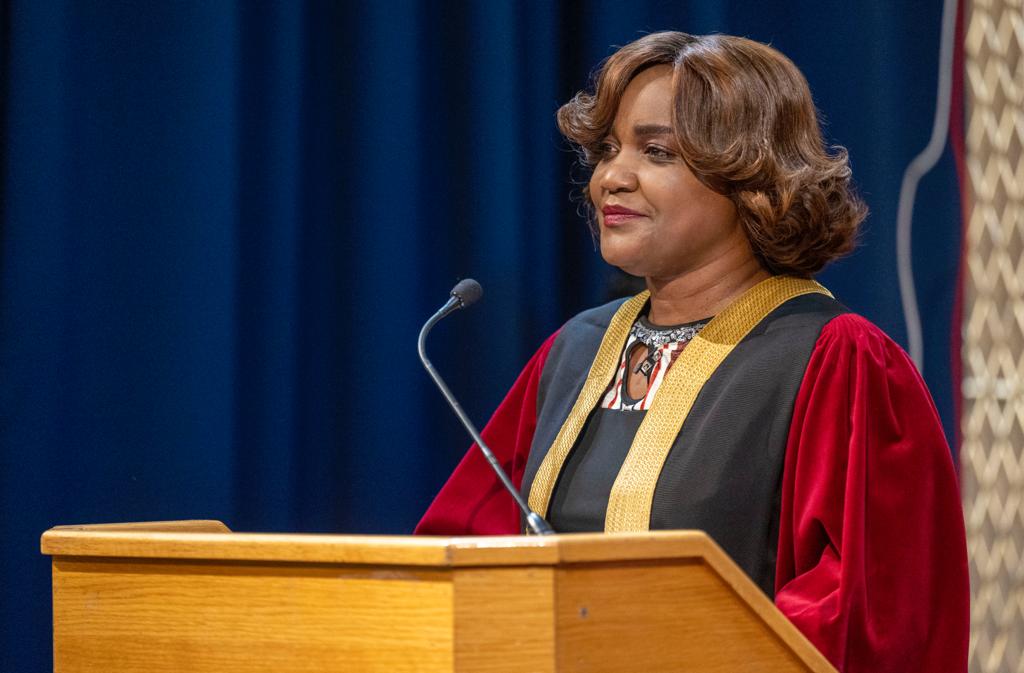
How many years will you be at the University of Edinburgh?
The term is 3 years. My current term ends in February 2024 and I’ve already made it very clear to the University of Edinburgh that I’m not going to renew my term. They asked me to renew and I refused.
Why?
Because I think I’ve already done an extraordinary job and I wouldn’t want another three years to tarnish the work I’ve already done. I have laid a solid foundation and I firmly believe that those who come after me will build on it. Nobody is irreplaceable and I have to pursue my vision elsewhere.
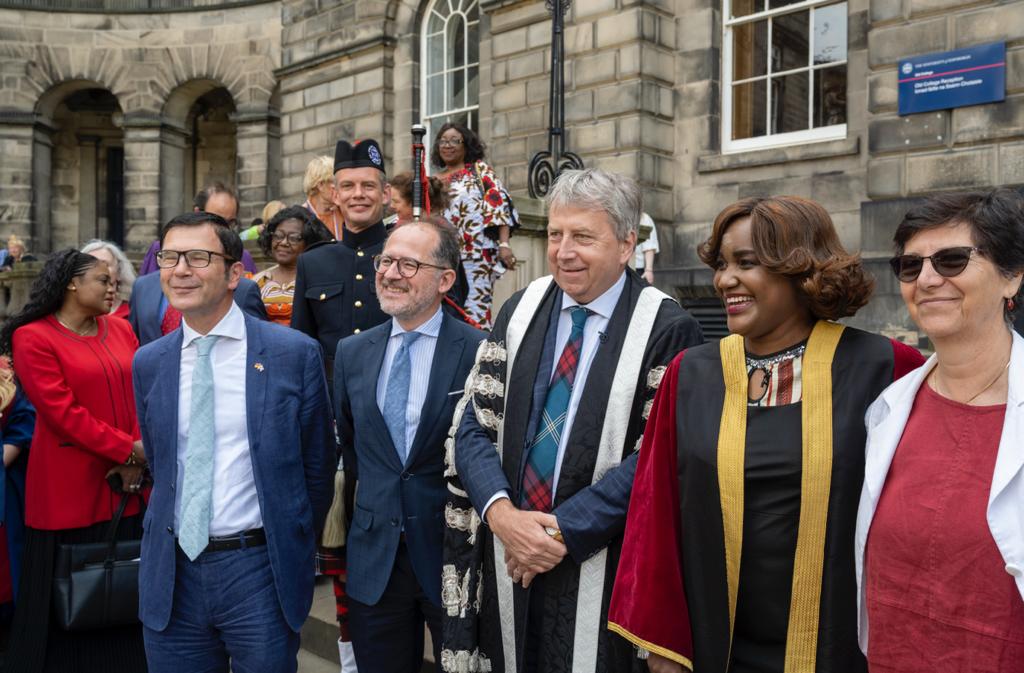
What projects do you still have to put in place, a few months before the end of your mandate as Rector?
The only project I have left is the decolonisation programme and the return of the ancestral skulls that are still at the University of Edinburgh. I’m going to contact all the people around the world whose ancestral skulls I know are right under my desk, so that they can come and get them and bring them back. And we must ensure that the university can turn the page on colonial practices.
What are you going to do after your term as Rector of the University of Edinburgh?
I’ve had a lot of requests, particularly in the military, defence and artificial intelligence fields. But I’m not going to change the person I was before becoming Rector of the University of Edinburgh, because that’s the person who seduced the university. I want to remain that person for as long as possible. Because, as long as you stay in this system and you’re stuck in it, you don’t realise that you’re starting to change and to think like the system. That’s what I don’t want. I’d really like to finish my term of office so that I have enough time to choose what I want to do next. There are a lot of very interesting offers on the table.
